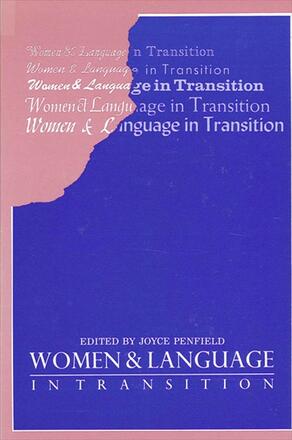
Women and Language in Transition
Alternative formats available from:
Description
This collection of essays deals with the interplay of language and social change, asking the question: How can language and society be made gender equal? The contributors examine the critical role of language in the lives of white women and women of color in the United States. Since language pervades many dimensions of women's lives, this study takes a multi-disciplinary approach to the issues considered.
The volume is divided into three sections. The first, "Liberating Language," focuses on the active role women had in altering the extent of linguistic sexism in English during the 1970s. A second section, "Identity Creation," deals with the alteration of that portion of language which serves to name women and their experiences. The final section, "Women of Color," offers a rare and timely look at the particular problems confronted by minority women. It argues that women of color have different problems and different links to language than white middle-class women.
Joyce Penfield is an Assistant Professor in the Graduate School of Education at Rutgers University.
Reviews
"The connections that the book makes among language change, social change, and individual change ("identity") are important contributions to the literature on gender and language. The section on minority women's experiences is significant in suggesting ways in which such changes have differed for different groups of women in the U. S."— Marsha Houston Stanback